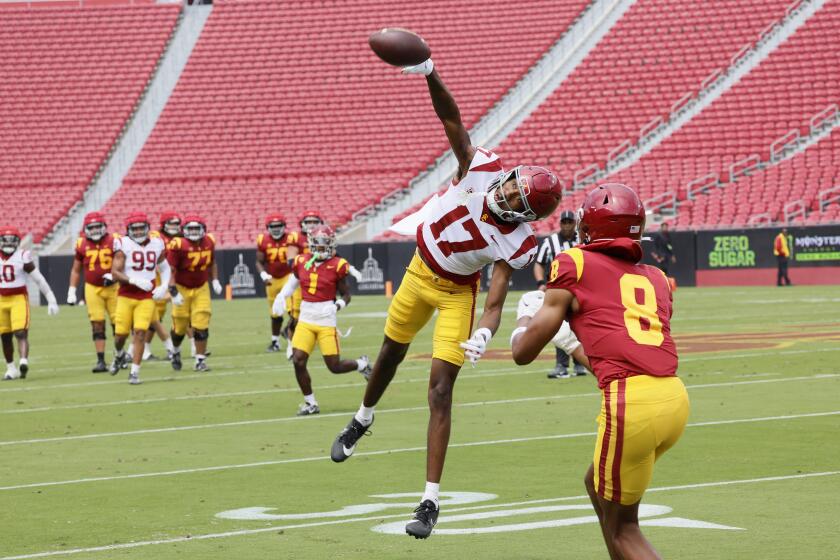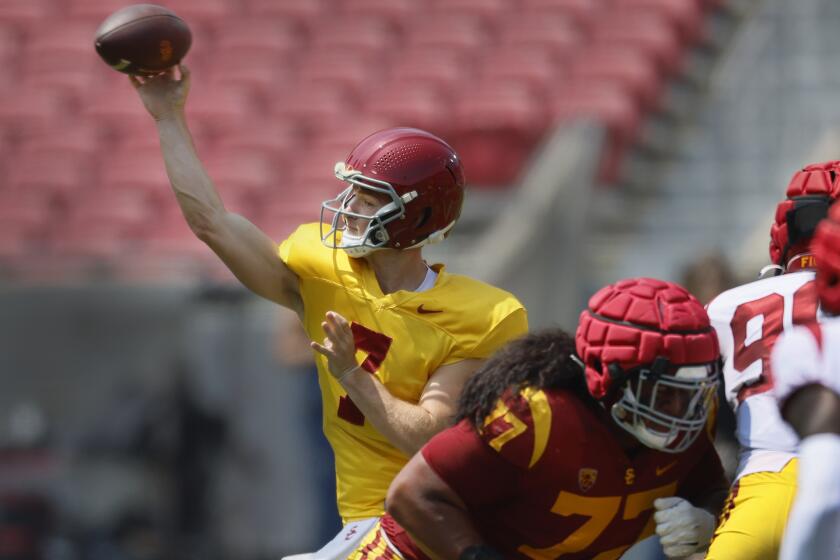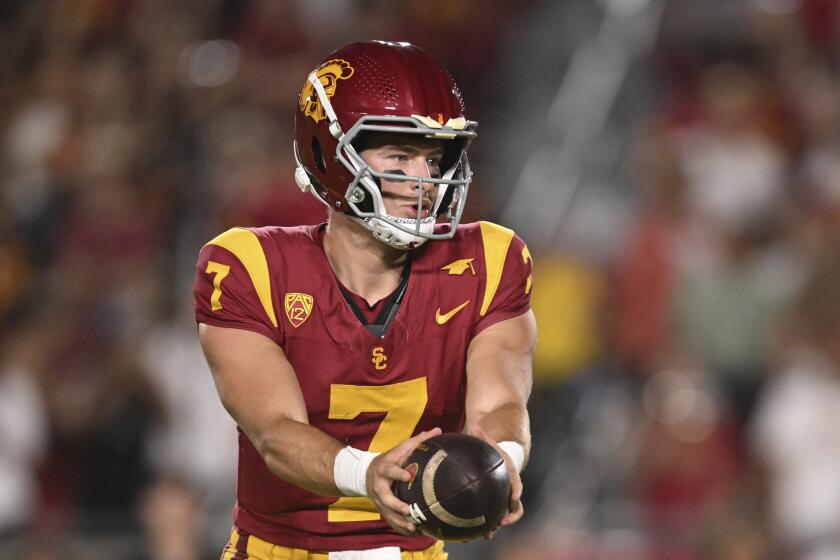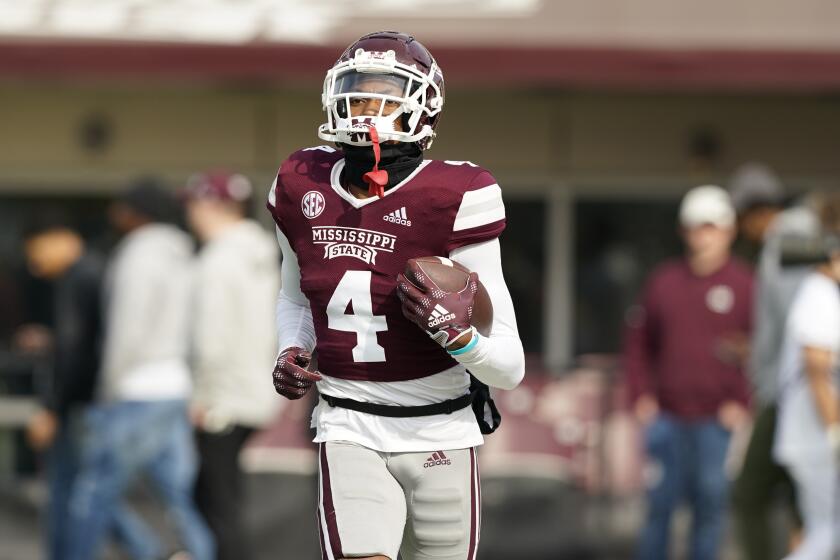Whatever NCAA imposes on USC probably won’t be unprecedented
The NCAA committee that will meet beginning Thursday to determine the fate of USC athletics will do more than hear testimony, look at the evidence investigators have gathered and ponder the university’s response.
It will also consider precedent -- past cases with similarities to whatever findings it makes concerning allegations that star football and men’s basketball athletes received benefits in violation of college rules.
“We try to be consistent,” Paul Dee, chairman of the NCAA Committee on Infractions, said recently.
USC has already self-imposed penalties on its men’s basketball program, acknowledging that rules were broken in the recruitment of O.J. Mayo, who played for the Trojans in 2007-08 before moving on to the NBA. Victories from that season were forfeited, scholarships were taken away, recruiting restrictions imposed, and the team was banned from postseason play this year.
The football program is also facing scrutiny, with allegations that Heisman Trophy-winning running back Reggie Bush received improper benefits from would-be marketers in 2004-05, and evidence that running back Joe McKnight last season was driving a sport utility vehicle owned by a Santa Monica businessman.
The infractions committee meets several times a year. One source familiar with the inner workings of the group, the director of a major university’s compliance department, said five rulings from just last year share enough common elements with USC’s situation -- involving multiple athletes in multiple sports, for example -- that they could be used as guidelines. The source spoke on the condition of anonymity because of the sensitive nature of the case.
Should USC receive any penalty beyond what it has self-imposed, that penalty might not be announced for 10 weeks or so after the conclusion of this weekend’s hearing.
A look at the cases:
Memphis
A women’s golf coach provided impermissible benefits totaling more than $3,000 to four players, then provided false and misleading information to NCAA enforcement staff; Derrick Rose, star of the school’s NCAA finalist basketball team, had an invalid SAT score and should not have been eligible to compete in 2007-08; Rose’s brother received impermissible benefits such as free lodging and air transportation.
Penalties: Three years’ probation; forfeiting 38 wins from 2007-08 basketball season; reduction of women’s golf scholarships; loss of basketball postseason revenue; five-year show-cause order restricting athletically related duties of the fired women’s golf coach at any NCAA-member school. Memphis is appealing the sanctions.
Alabama
More than 200 athletes in 16 sports misused the university’s textbook distribution program for athletes to an amount totaling nearly $40,000 -- with 22 players knowingly breaking rules and giving textbooks and other materials to friends and other athletes.
Penalties: Three years’ probation; forfeiture of football victories and individual records in men’s tennis and men’s and women’s track and field; a $43,900 fine. Alabama is appealing the sanctions.
South Alabama
The men’s tennis coach provided more than $12,000 in impermissible financial aid to five international players over a six-year period.
Penalties: Three years’ probation; reduction in scholarships; four-year NCAA show-cause order for coach; permanent disassociation of coach with South Alabama’s program; forfeiture of victories; one-year postseason ban.
Florida State
Three staff members were found guilty of academic fraud for giving improper assistance to 61 athletes in 10 sports.
Penalties: Four years’ probation; scholarship reductions in 10 sports, forfeiture of all victories in which the involved athletes competed; show-cause orders ranging from three to five years for the staff members.
Texas A&M Corpus Christi
The athletic department was cited for lack of institutional control because of a “culture of noncompliance.” Specifically, two international athletes -- one in women’s volleyball, one in men’s tennis -- and an international men’s basketball prospect were at the center of violations that included ineligible participation, receipt of recruiting inducements, impermissible recruiting phone calls and a failure to report NCAA violations.
Penalties: Four years’ probation; forfeiture of victories, postseason bans and scholarship reductions in volleyball and men’s tennis; recruiting restrictions in all three sports.
Go beyond the scoreboard
Get the latest on L.A.'s teams in the daily Sports Report newsletter.
You may occasionally receive promotional content from the Los Angeles Times.



